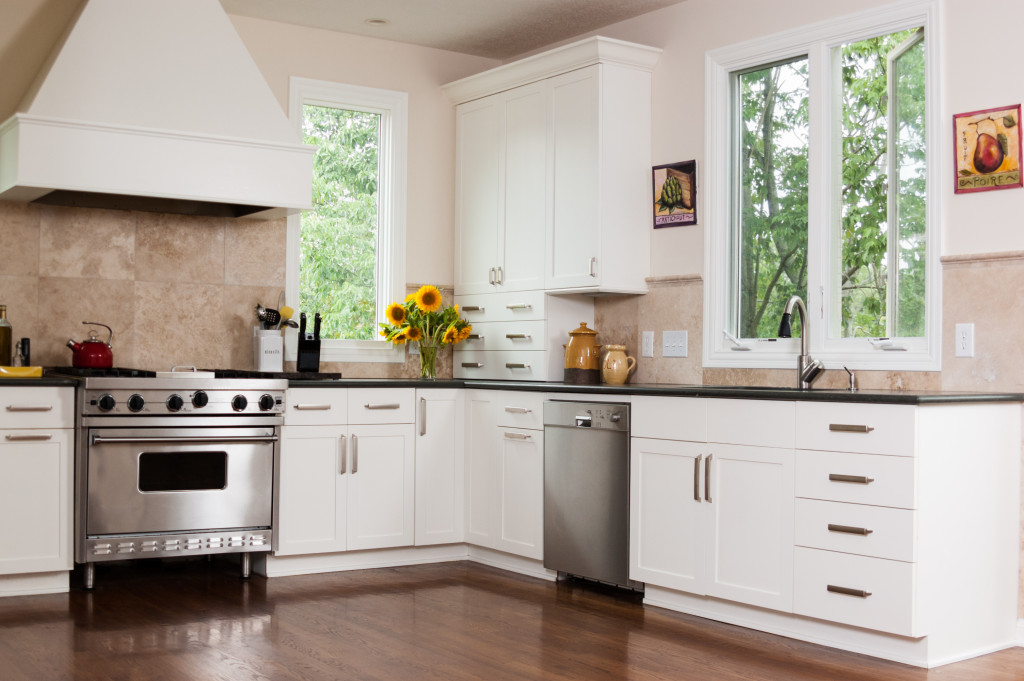There are many things you can do to make your home healthier. Some experts say that up to 80 percent of illnesses come from unhealthy homes. Additionally, if you have children, use a room in your house as a nursery, or have pets, you will probably want to pay extra attention to how clean things are because they can affect your child’s health.
Of course, this doesn’t mean that it would be easy or even possible for everyone to make changes at home. But if you have the option, here are eight quick and easy ways your family could start living healthier lives right now:
Change out old carpets for laminate flooring.
If your carpets are older than five years, they’ve probably accumulated a lot of dirt inside and out. With laminate flooring, you won’t need to worry about them anymore: they can be ripped up in less than an hour and replaced with clean floors. Plus, the new flooring will make your home look better and feel cleaner.
Wash all bedding once a week.
Wash your sheets once a week. A lot of people never wash their sheets, which is bad for three reasons: one, it can transfer yeast and fungus from our bodies to the linens in our beds; two, it makes the space in your bed less breathable and more humid; and three, it makes your bed more comfortable for dust mites to live in.
Get rid of any moldy food products.
If you can, get rid of any food that has been sitting in your pantry for longer than a year. If it’s not already expired, mold isn’t far behind. If you don’t want to get rid of old food, keeping them out of the way and away from other foods is a good idea: this will reduce the chances of food being contaminated by one another.
Make sure your home is well-ventilated.
Ensure that there’s an open window in every room, especially the rooms where people sleep. If you have a closed-door or windows that face other buildings, then you might want to put some filter over them to keep out pollutants and contaminants.
Households like many across the country must also have clean air ducts, which can be accessed by hiring a professional to clean your air ducts. There are no set rules to follow when it comes to cleaning your home’s ventilation systems, but if you get them cleaned every six months or so, that should help keep pollutants out of your home.
Replace old and worn-out furniture with new ones.
This is a good idea for those who have any upholstered pieces, such as sofas and couches: even if they’re not visibly dirty, they could be slowly collecting dust and dirt inside them. You can either get rid of these items or make it a point to clean them regularly.
Additionally, you can get rid of your down comforter and get a duvet instead.
Down comforters are usually filled with feathers, which can irritate allergies and asthma. Duvets, on the other hand, provide warmth without any added ingredients that can harm you or your family.
Clean bathrooms daily with bleach and water mix.

This is best for those who have children in the home. According to the American Academy of Pediatrics, young children are more likely to develop respiratory problems if they spend time playing on surfaces that were recently mopped or vacuumed with bleach.
For adults, having clean bathrooms can help reduce the number of bacterial infections you contract. The CDC recommends mixing bleach with water in a 1:3 ratio before scrubbing down your bathroom. If you have children, make sure to let the mixture dry completely before letting them play.
Clean up after pets.
Having pets in your home can actually be good for you, but only if they are properly taken care of. Daily cleaning is important because it can reduce the number of allergens that accumulate around our homes.
Wash pet beds regularly and clean up after them to prevent bacterial build-up over time. Don’t forget to clean up their toys too, which can house bacteria and parasites that your pets bring in from outside.
Grow more indoor and outdoor plants.
Indoor plants have been shown to reduce the number of air pollutants in our homes, which can help reduce allergies and asthma attacks. Outdoor plants can also help, especially when they have enough space to grow big around your home.
Aside from reducing pollution inside the house, indoor and outdoor plant life has been linked with a reduced risk of having a heart attack and stroke as well as with lower blood pressure.
Before you make a change in your home, it’s important to know how those changes can affect your health. Your home should be as hygienic as possible for the sake of everyone living there: whether that means opening up all your windows or getting rid of old furniture that could affect people’s allergies and respiratory conditions.
